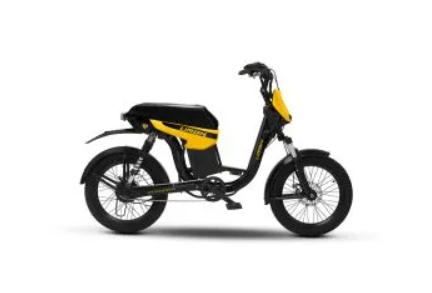Hyderabad commuters are increasingly embracing e-bikes as a cost-effective and environmentally friendly alternative to traditional modes of transport, according to a study conducted by BITS Pilani, Hyderabad, and La Trobe University, Australia. The study highlights the growing preference for e-bikes, driven by rising fuel costs, traffic congestion, and the associated health and environmental benefits.
The survey, which included 482 commuters at major intersections and metro stations, revealed that nearly 60% of respondents were willing to switch to e-bikes. This significant shift underscores the potential of e-bikes as a sustainable solution for urban mobility. A notable finding of the study is the gender-based preference in e-bike usage. A majority of women commuters favoured e-bikes for first and last-mile connectivity to the Metro, viewing them as convenient ‘feeder’ vehicles. In contrast, male commuters expressed interest in using e-bikes for short recreational trips, indicating diverse motivations across different demographic groups. “We are studying the adoption of e-bikes in the city as they require relatively less physical effort and could be promoted as a green and climate-friendly solution among Hyderabad residents,” said one of the researchers, an associate professor at BITS Pilani. The study, peer-reviewed and published in the Journal of Transportation Research Record, involved comprehensive behavioural analysis and surveys conducted at metro stations in Begumpet, Hi-Tech City, Nagole, Raidurg, and office areas in Gachibowli, Madhapur, and Kondapur.
Despite the positive inclination towards e-bikes, the study identified several barriers to widespread adoption. The lack of dedicated cycling paths emerged as a primary deterrent, highlighting the need for improved infrastructure. Additionally, while charging infrastructure was noted as a concern, it was not considered a significant barrier given that e-bikes are typically used for distances under 10 km. “A lack of cycling paths is one of the major deterrents. We need more dedicated cycle paths to increase the usage of e-bikes,” stated a PhD student involved in the study. The researchers recommend several policy measures to enhance e-bike adoption, including the implementation of public e-bike sharing systems, incentives for firms promoting e-bike usage, and the construction of dedicated cycle paths throughout the city. The findings of this study underscore the need for strategic urban planning to accommodate and encourage the use of e-bikes. As fuel prices continue to rise and urban congestion worsens, e-bikes present a viable solution for sustainable transportation in Hyderabad. The recommended policy interventions could significantly boost e-bike usage, contributing to a greener and more efficient urban transport system.


